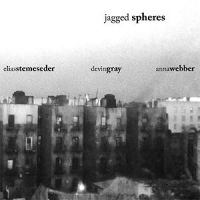Home » Jazz Articles » Extended Analysis » Vijay Iyer: Vijay Iyer: Mutations
Vijay Iyer: Vijay Iyer: Mutations
On the strength of Mutations, it's clear that Iyer's relationship with Eicher is already bearing significant fruit. Focusing more on composition—though improvisation is by no means far away—at Mutation's core is the ten-part, 45-minute title suite, a dark, otherworldly piece of music for piano, string quartet and electronics. The suite is bookended by three pieces for solo piano and, in some cases, electronics: the crepuscular opener, "Spellbound and Sacrosanct, Cowrie Shells and the Shimmering Sea"—first heard on the pianist's 1995 Asian Improv Records debut, Memorophilia—is revamped from its original trio format into a solo vehicle, intrinsically providing Iyer more room for self-expression, especially when it comes to time; "Vuln, Pt 2" follows and, with the introduction of electronics that provide shimmering color and a subtle pulse, acts as a perfect segue into the Mutations suite; the closing "When We're Gone," with Iyer's sparely delivered abstrusities and subtle, panning electronic chimes, is the perfect coda to an hour-long journey through terrain defined by melodic cells or kernels and the manner in which subtle shifts—sometimes planned, other times a function of in-the-moment decision making when it comes to how and when to incorporate them—cause the very mutations that give the suite its title.
"Mutation I: Air" begins with a single bowed note, gradually joined by the rest of the string quartet to gradually build to a brighter, minimalist-oriented piece of counterpoint, a soaring violin line eventually emerging over the propulsive underpinning only to become subsumed as yet another kernel to be morphed, gradually, into something else, in this case a combination of long-bowed notes that drag the tempo down towards its conclusion. "Mutation II: Rise," is aptly titled; after a brief intro of delicately percussive electronics, the strings enter, beginning in a low register and gradually ascending until various members of the string quartet begin to inject oblique lines atop the persistent soaring of their partners. Iyer makes his first appearance in the suite on the equally well-titled "Mutation III: Canon," a contrapuntal miniature where thematic constructs and repeated phrases move in and out of the mix—one moment dominating, the next, supporting.
The ambitious nature of Iyer's work on Mutations may seem new, based on his extant discography; the truth, however, is something else. The MacArthur Foundation Fellowship recipient—often referred to as "the genius grant," and for good reason—has worked with classical instrumentation throughout his career—not just writing for them, but studying violin for 15 years and playing in string quartets and orchestras. It's a history that gives Iyer the deeper understanding which makes him particularly qualified to engage in these activities, even though he's been unable to record any of this work until now. The Mutations suite was, in fact, written in 2005, but has changed considerably over time, as Iyer explains, "by working with the same notated elements but pushing the real time element more and more."
"Mutation VII: Kernel" is, perhaps the best example of how Iyer combines compositionally defined constructs with the more unfettered possibilities of improvisation. Described, by Iyer, as "a kind of sculpted, open improvisation," the members of the string quartet are free to take compositional kernels and interpret them in ways that make each performance not just a new experience but, for the pianist/composer, "something new that I didn't even foresee."
Mutations is a landmark recording from an artist who, while already possessing an admirable discography, has clearly been limited to more decidedly jazz-oriented concerns. Representing a significant musical shift, if Mutations is but the first sign of the greater freedom ECM plans to afford Iyer, the only vaticinator of what's to follow will surely be its complete and utter unpredictability.
Tags
Vijay Iyer
Extended Analysis
John Kelman
ECM Records
United States
New York
New York City
Pi Recordings
Savoy Jazz
Sunnyside Records
ACT Music
Manfred Eicher
Vijay Iyer: Mutations
PREVIOUS / NEXT
Support All About Jazz
 All About Jazz has been a pillar of jazz since 1995, championing it as an art form and, more importantly, supporting the musicians who make it. Our enduring commitment has made "AAJ" one of the most culturally important websites of its kind, read by hundreds of thousands of fans, musicians and industry figures every month.
All About Jazz has been a pillar of jazz since 1995, championing it as an art form and, more importantly, supporting the musicians who make it. Our enduring commitment has made "AAJ" one of the most culturally important websites of its kind, read by hundreds of thousands of fans, musicians and industry figures every month.





















